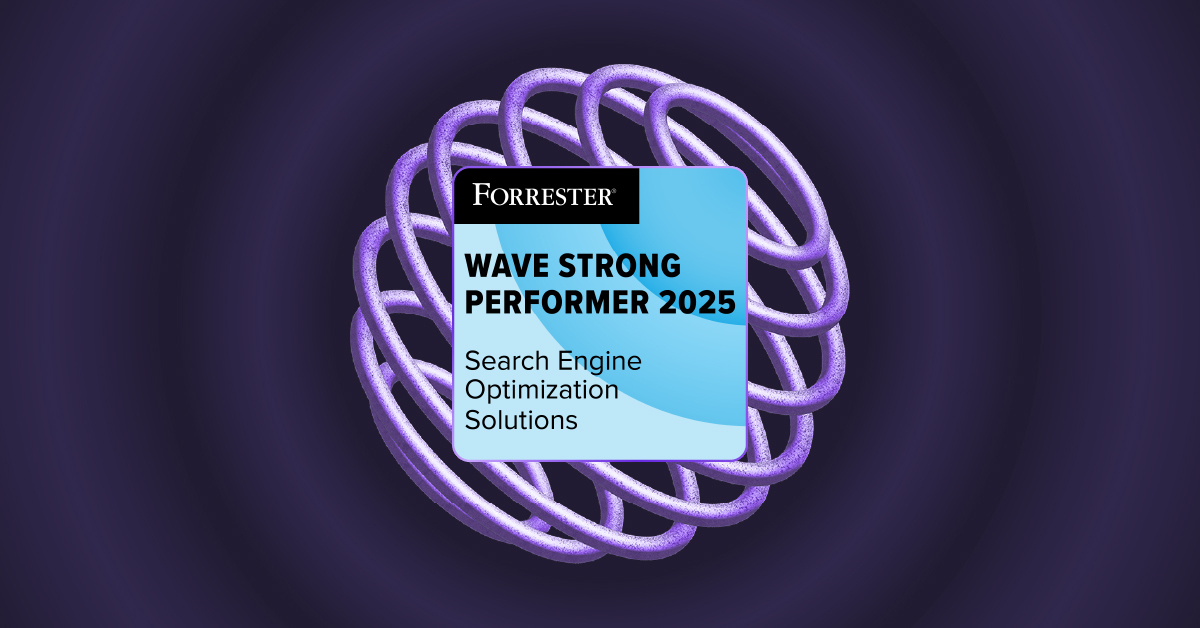Back to learn seo
Optimizing the Performance Marketing Mix: Can we measure the value of organic search?

The organic search paradox.
There’s an irony at the heart of organic search.
For users, searching is one of the most natural, rapid, and trusted digital experiences. You ask questions and you expect the best answers in return, instantly.
For users, search could not be more simple.
For brands it’s a lot more complicated.
- Historically it has taken a long time to see results.
- For many marketers, it’s a black box, you put a lot into it without complete clarity on what you get back.
- SEO experts have their own highly-technical jargon, which can leave non-specialists mystified and skeptical.
- It requires a leap of faith from the business as it’s been historically difficult to prove the ROI of organic search, connecting inputs with tangible outcomes.
When CMOs have to increasingly achieve more with less resources, organic traffic should be a highly attractive prospect. And yet, it’s precisely because CMOs have fewer resources that they remain cautious about betting on a channel clouded in misconceptions which does not appear to demonstrate direct or rapid ROI.
The Pay-Per-Click paradox
This lack of measurement is a major blocker for organic search being understood, trusted and invested in by marketers. This leads to further ironies, highlighted by some recent research findings:
- 51% of respondents place more trust in a brand that ranks highly in organic search results than one that appears as a sponsored or paid advertisement.
- More than 60% of Gen Z and Millennials favor brands featuring in the top 5 of page 1.
- 55% say they will follow or switch to a new brand when they find it through organic search.
- A third of respondents would rather refine their search term than access a result not on page 1.
Organic search goes beyond discoverability to inform consumer’s decision making. That’s also why brands were invented. They help consumers decide between competing products or services they can trust to meet their needs. In the digital realm, a brand appearing through organic search in response to those needs is already halfway there. This is the start of a journey of a seamless customer experience, enhanced loyalty and ultimately market share. It starts with organic findability.
Organic search inspires trust, and so should be deployed as a powerful brand-building channel. And yet, it’s widely believed that organic is for non-branded traffic, and that paid media is for building brand visibility and awareness.
The problem is, consumers place far less trust in PPC than marketers do, scrolling past the ads to review the first organic results.
It’s all upside down. The complexity of SEO, and the difficulty of measuring its ROI prevents making its unique contribution to the performance marketing channel mix, as well as capitalizing on the brand trust associated with organic findability.
The measure of all things
Organic value is often an afterthought, what’s left over after the measurement has dictated channel choice. A welcome bonus, but difficult to calculate with total confidence. “It depends” and “it takes time” just won’t cut it when you need to achieve rapid results for real-time resource and channel management. And so SEO is siloed from the rest of the marketing stack.
The measurement mindset gives marketers the illusion of control, yet locks them into a short-term addiction cycle of paying for brand visibility. Ultimately this means they are limiting their resources for digital brand building.
PPC is measurable, but less trusted by consumers. Organic is trusted, but not measurable.
Change that mindset and you start to change the meaning and currency of organic search as a performance marketing and brand-building channel.
From ROAS to ROSS
For Paid Media there is ROAS, the accepted standard for calculating Return on Ad Spend. What’s needed is a ROSS, the Organic Search equivalent.
Being able to measure the Return on Organic Search Spend (ROSS) would make SEO more actionable, like PPC.
This would provide more clarity and control of organic as a performance marketing channel, allowing brands to adopt more holistic search strategies.
And it would help them make better decisions about how paid and organic could work together to drive profitable and sustainable digital visibility.
If realized, ROSS wouldn’t just help to change performance marketing practice. It would help to transform the meaning, value and understanding of organic search within enterprises. SEO would no longer be siloed from the rest of the marketing stack, and would finally find its seat at the table.
On the road to ROSS
So much has changed in SEO over the last ten years.
- SEO is no longer a black box. There are comprehensive data sets to take the guesswork out of search, and optimize with assurance and precision.
- SEO is no longer a waiting game. With AI and automation on their side, SEO teams can make changes rapidly, cut out delays, achieve quicker results as well as long-term growth, and see a more direct relationship between cause and effect in tracking organic results. “Velocity SEO” is now a reality.
- Scalable organic impact is possible for even the largest enterprise sites, with Machine Learning enabling teams to align optimizations with business goals.
Everything in SEO has changed, except the perception of it. We believe it’s time to change that too.
At Botify, we want to make organic search as simple, rapid and trusted for brands as it is for consumers looking for answers.
Being able to measure the Return on Organic Search Spend would be a major step in that direction.
We owe it to our customers to achieve this.
Watch this space for updates.
.svg)




.svg)
_Webinar_Banner%201%20(1).png)

.svg)
.svg)

